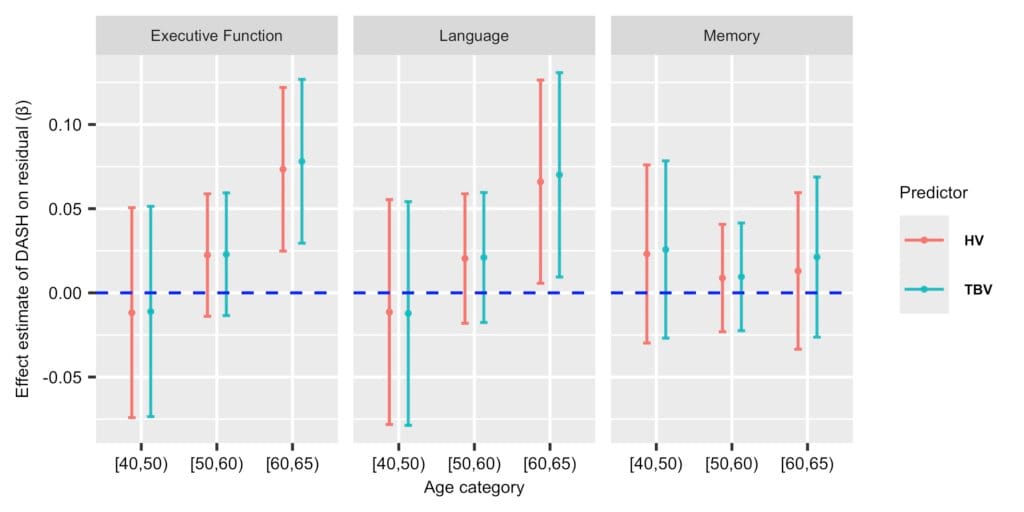Neurology
The association between the DASH diet and resilience to neurodegeneration in memory, language, and executive function domains: Framingham Heart Study Tianyu Liu* Tianyu Liu Phillip H Hwang
Background
Emerging evidence suggests that the Dietary Approaches to Stop Hypertension (DASH) may improve brain health and reduce cognitive decline. However, more research is needed to understand its effects on neurodegeneration across different cognitive domains and age groups.
Methods
In total, 1163 subjects aged 40 to 65 who attended Exam 5 between 1991 and 1995 were selected from the Offspring cohort of the Framingham Heart Study and were followed until they underwent their first neuropsychological (NP) test at age 60 or older. DASH was calculated as both continuous and categorical (e.g., quartiles) variables based on food frequency questionnaires at baseline. The outcomes were six residuals for memory, language, and executive function scores from the NP exam, predicted by total brain volume and hippocampal volume based on structural brain magnetic resonance imaging. We used linear regression adjusting for age, sex, education, BMI, physical activity, smoking, alcohol, hypertension, and diabetes, and performed the subgroup analysis by three age categories with the cutoffs of 50 and 60.
Results
DASH score was positively associated with resilience to neurodegeneration in executive function predicted by both total brain volume (β = 0.03, 95% CI: 0.004-0.056) and hippocampal volume (β = 0.028, 95% CI: 0.003-0.148). The impact of DASH in the 60+ age group on resilience to neurodegeneration was stronger in language and executive function, with the estimates of the fourth DASH quartile as 0.216 (95% CI: 0.051-0.382) and 0.213 (95% CI: 0.081, 0.345) compared to the first quartile. In the age 50-60 group, people in the 2nd DASH quartile had a 0.096-unit (95% CI: 0.004-0.187) higher resilience to neurodegeneration in memory compared to the 1st quartile.
Conclusion
A high DASH score was associated with improved resilience to neurodegeneration in memory, language, and executive function domains, with stronger associations observed at higher DASH scores and among older adults.

